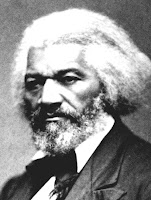It’s that time of year again, when the changing of the calendar stirs a sense of hope in new beginnings. We make our resolutions, gym memberships are purchased, diets are started and Bible reading plans are made. “This is the year! I’m really going to do it this time!” But it’s also easy to get very cynical about it all. We know that in the past we’ve set goals and failed. Two weeks into the new year we’ve broken every resolution: we’re behind on our Bible reading, breaking our diet and still not made it to the gym. I saw a funny tweet the last week of December, “According to my 2013 New Year's resolution, I have 72 hours to lose 30 pounds, learn to speak Spanish and play the banjo.”
I want to encourage you to not give up hope in starting over and pursuing new possibilities, or even restarting ones you’ve attempted in the past. If there is one thing that the gospel teaches us it’s that God LOVES new beginnings! We can even see it in creation: He gives us a sunrise to start each new day and His natural calendar gives us changing seasons that display growth, life, death and rebirth. These are all pictures of the new beginning He has given us in Jesus. “Therefore, if anyone is in Christ, he is a new creation. The old has passed away; behold, the new has come.” 2 Corinthians 5:17 However, many of us struggle with believing that God wants to continue to give us second chances and new beginnings once we have put our faith in Christ. We know that we are forgiven of our sinful past, put what about our present sins and failures? You may remember this verse that is also used in the classic hymn, “Great is They Faithfulness.”
“The steadfast love of the Lord never ceases; His mercies never come to an end; they are new every morning; great is your faithfulness.” Lamentations 3:22-23
He is faithful, even when we are faithless! (2 Timothy 2:13). His grace is for today! And He wants us to know His unconditional love that compels us to begin again... again.
Patiently, gently and kindly He leads us on. Sometimes one step forward, other times two steps back. And even though this process of transformation is something that we have a part in, it's not our own efforts that make us grow. We can't take credit for the progress. However, it is often through our choices that we position ourselves to encounter God in a way that He changes us. Just as we can put a plant in the sunlight, but we can't make it grow, we can position ourselves in His light and it is there that we are changed. We do the possible and He does the impossible. Through His Word, His presence and His people, He transforms our lives.
In light of this truth, I want to encourage you to make a resolution. Now this is not some outrageous grand goal to accomplish something monumental that you’ve never done before. I just want to invite you to do some simple things every day that lead you to a place of encountering God. These are seven common practices, that can have profound and uncommon results.
1) Pray (Ephesians 6:18)
2) Be Thankful (1 Thessalonians 5:18)
3) Worship with Song (Psalm 95)
4) Read God’s Word (Romans 10:17)
5) Listen For God’s Voice & Journal (John 18:37)
6) Surrender (Romans 12:1-2)
7) Seek Out Other Believers (Acts 2:42)
You most likely have done all of these at one time or another. If you think about it, this is what you do in a church service. Ever wonder why you leave feeling refreshed and encouraged? It’s because for one hour you practiced the disciplines that lead you into a transforming encounter with God. Why not seek to do this every day?
Here is a very practical suggestion for living this out. Make a list of these seven things. Look at it when you wake-up in the morning, revisit it at noontime and review it before you go to bed. Set up alerts on your phone if that is helpful. Each time you are reminded, respond to one or more of these practices. Talk to God, count your blessings, sing a song of praise, listen to God and journal, surrender your will to Him or reach out to a believing friend and share your life. As you do this, remember that the goal is not to simply check something off of your list, but to encounter the Father. When you get busy and forget this endeavor, missing a morning, a day, or a week, don’t be ashamed of starting again. This is what grace is for! The grace that saved you is the same grace that sustains you and transforms you. His grace is for today, everyday. There is literally NO condemnation for those who are in Christ! (Romans 8:1) Return to the Lord, and pick up where you left off. He’s patiently waiting and He is happy to meet you right where you are.
New year, new you... why not?
Receive His grace, encounter Him daily and be changed!
(a portion of this blog was inspired by and shamelessly somewhat plagiarized from the Antioch Dallas #drawnear27 devotional. www.antiochdallas.org)

















